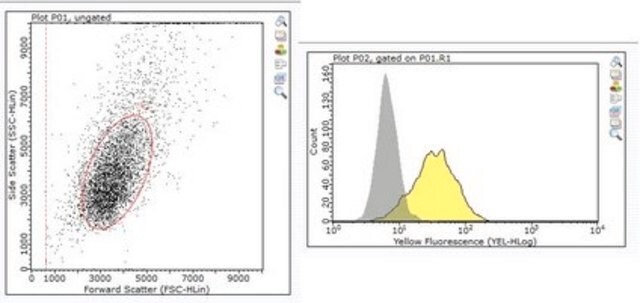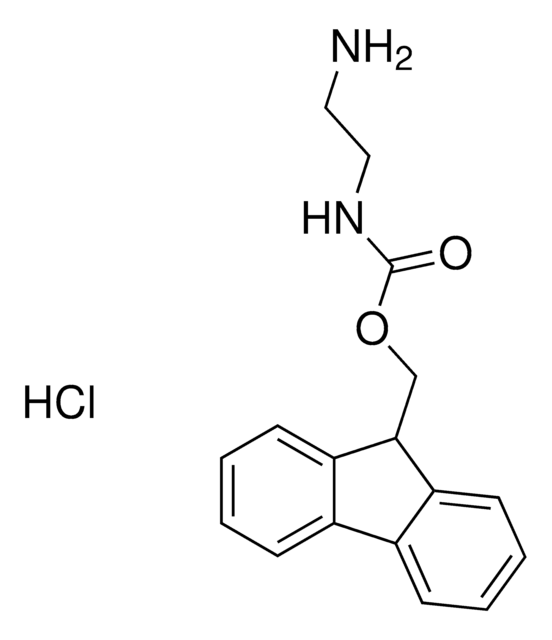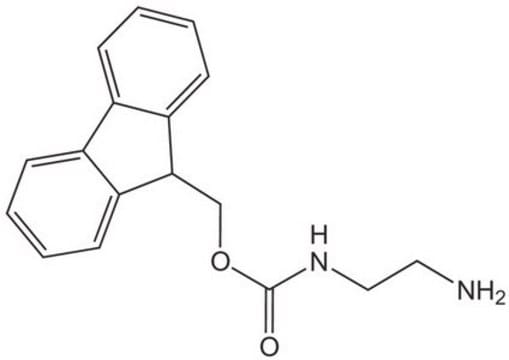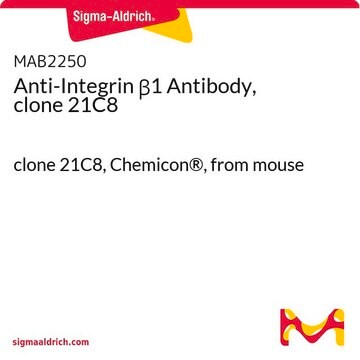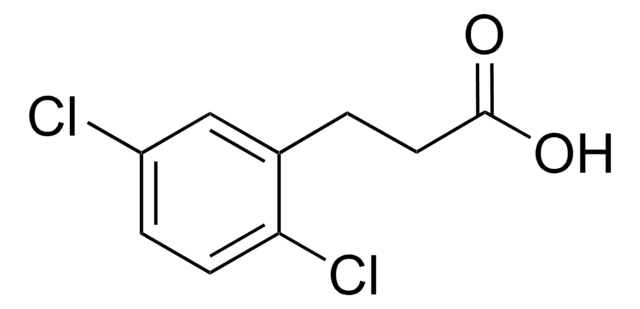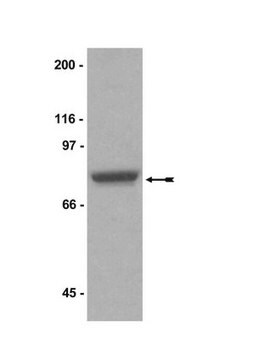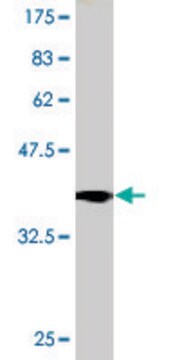MAB2000
Anti-Integrin β1 Antibody, clone HB1.1
clone HB1.1, Chemicon®, from mouse
Sinónimos:
CD29
About This Item
Productos recomendados
biological source
mouse
Quality Level
antibody form
purified immunoglobulin
antibody product type
primary antibodies
clone
HB1.1, monoclonal
species reactivity
human, pig
manufacturer/tradename
Chemicon®
technique(s)
flow cytometry: suitable
immunohistochemistry: suitable
immunoprecipitation (IP): suitable
western blot: suitable
isotype
IgG1κ
suitability
not suitable for activity/function inhibition
NCBI accession no.
UniProt accession no.
shipped in
wet ice
target post-translational modification
unmodified
Gene Information
human ... ITGB1(3688)
Specificity
Application
Flow cytometry: 10 μg/mL
Western blot
Immunohistochemistry in frozen tissue samples: 5 μg/mL
Induction of cell aggregation: 10 μg/mL. MAB2000 is a potent stimulator of cell aggregation tested in U937, Jurkat and human peripheral blood lymphocytes.
MAB2000 does not affect VLA integrin-mediated cell adhesion to matrix proteins.
Optimal working dilutions must be determined by end user.
Cell Structure
Integrins
Linkage
Physical form
Storage and Stability
Other Notes
Legal Information
Disclaimer
¿No encuentra el producto adecuado?
Pruebe nuestro Herramienta de selección de productos.
Optional
Storage Class
10 - Combustible liquids
wgk_germany
WGK 2
flash_point_f
Not applicable
flash_point_c
Not applicable
Certificados de análisis (COA)
Busque Certificados de análisis (COA) introduciendo el número de lote del producto. Los números de lote se encuentran en la etiqueta del producto después de las palabras «Lot» o «Batch»
¿Ya tiene este producto?
Encuentre la documentación para los productos que ha comprado recientemente en la Biblioteca de documentos.
Nuestro equipo de científicos tiene experiencia en todas las áreas de investigación: Ciencias de la vida, Ciencia de los materiales, Síntesis química, Cromatografía, Analítica y muchas otras.
Póngase en contacto con el Servicio técnico